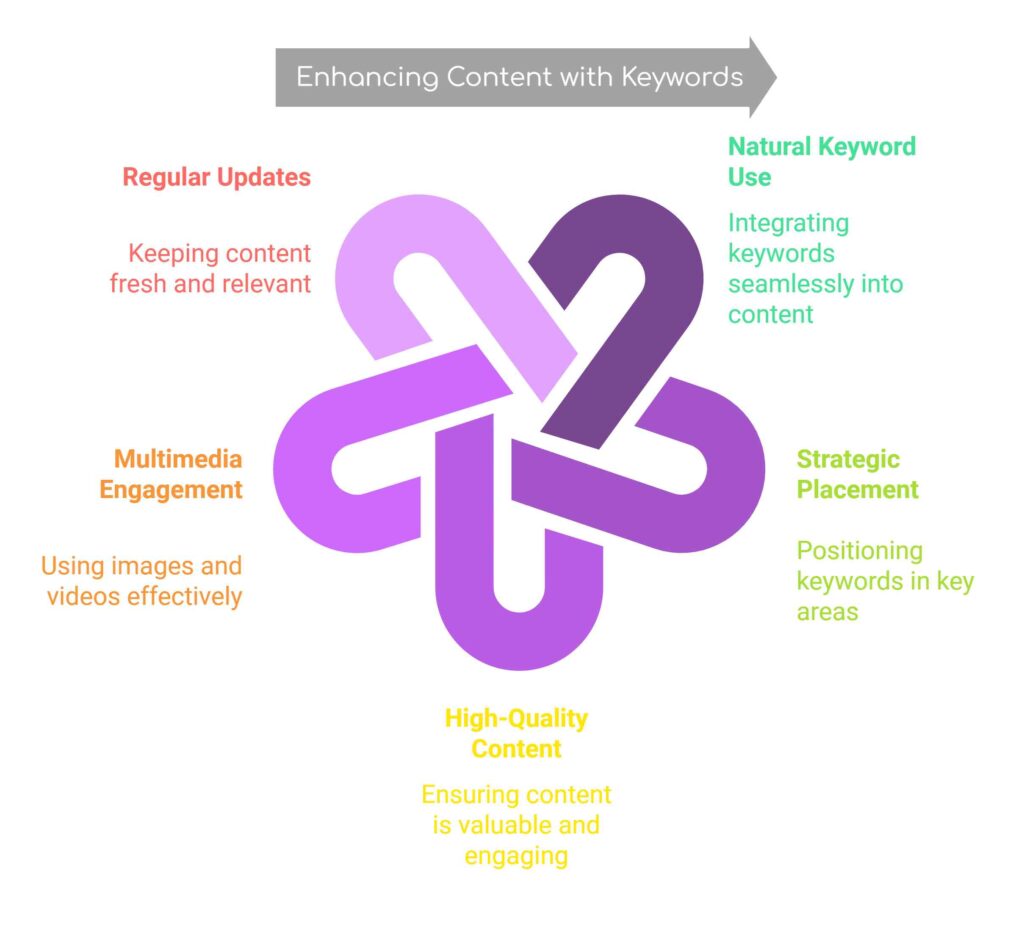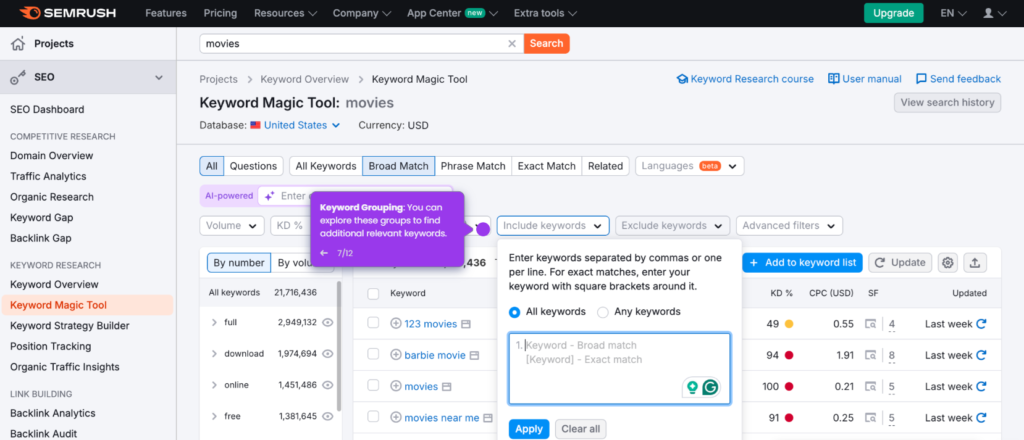Keyword research is very important in SEO. It helps you find the right words. These words can bring more visitors to your website.
Why Keyword Research Matters
Keywords are the words people type in search engines. When you know the right keywords, you can make better content. This content will help you rank higher in search results.
Understanding User Intent
People use search engines for different reasons. Some want to buy things. Some want information. Understanding why they search helps you pick better keywords.
Advanced Tips for Keyword Research

1. Use Long-tail Keywords
Long-tail keywords are longer and more specific. For example, “buy red shoes online” is a long-tail keyword. These keywords have less competition. They help you reach a more targeted audience.
2. Check Competitor Keywords
Look at what keywords your competitors use. Tools like SEMrush and Ahrefs can help. This gives you ideas for new keywords.
3. Use Google Suggest
Type a keyword in Google. Look at the suggestions Google gives. These are popular searches. They can be good keywords for you.
4. Analyze Search Volume And Competition
Search volume shows how many people search for a keyword. Competition shows how hard it is to rank for a keyword. Use tools like Google Keyword Planner. Look for keywords with high search volume and low competition.
5. Use Question Keywords
People often type questions in search engines. Keywords like “how to,” “what is,” and “why” can be useful. They help you create content that answers these questions.
6. Focus On Local Keywords
If you have a local business, use local keywords. These include the name of your city or area. For example, “pizza shop in New York.”
7. Use Keyword Variations
Don’t use the same keyword all the time. Use variations. For example, “buy shoes,” “purchase shoes,” and “order shoes online.”
8. Analyze User Behavior
Look at how people interact with your content. Use tools like Google Analytics. See which pages get more traffic. This helps you understand which keywords are working.
9. Use Latent Semantic Indexing (lsi) Keywords
LSI keywords are related to your main keyword. They help search engines understand your content better. For example, if your main keyword is “apple,” LSI keywords could be “fruit,” “juice,” and “orchard.”
10. Regularly Update Your Keywords
Keyword trends change over time. Regularly check your keywords. Update them to stay relevant.
Tools for Keyword Research
There are many tools to help with keyword research. Here are some popular ones:
| Tool | Description |
|---|---|
| Google Keyword Planner | Free tool by Google. Shows search volume and competition. |
| SEMrush | Paid tool. Offers detailed keyword analysis and competitor insights. |
| Ahrefs | Paid tool. Known for backlink analysis and keyword research. |
| Ubersuggest | Free and paid options. Shows keyword suggestions and trends. |
| AnswerThePublic | Free tool. Generates question-based keywords. |
Creating Content Around Keywords
Once you have your keywords, create content around them. Here are some tips:
1. Use Keywords Naturally
Don’t stuff your content with keywords. Use them naturally. Your content should be easy to read.
2. Place Keywords Strategically
Place keywords in important places. These include the title, headings, and first paragraph. Also, use them in the meta description.
3. Create High-quality Content
Your content should be useful and interesting. High-quality content keeps visitors on your site longer.
4. Use Images And Videos
Images and videos make your content more engaging. Use keywords in image alt text and video descriptions.
5. Keep Updating Your Content
Update your content regularly. This keeps it fresh and relevant. Add new keywords if needed.
Measuring Success
It’s important to measure the success of your keyword strategy. Use these methods:
1. Track Rankings
Use tools to track your keyword rankings. See how they improve over time.
2. Monitor Traffic
Look at your website traffic. See which pages get more visits. Use Google Analytics for this.
3. Analyze Engagement
Check how long visitors stay on your site. Look at bounce rates. Lower bounce rates mean people find your content useful.
4. Check Conversion Rates
See how many visitors take action. Actions could be buying a product or signing up for a newsletter.
Frequently Asked Questions
What Are Long-tail Keywords?
Long-tail keywords are phrases with three or more words. They attract targeted traffic.
How Can I Find High-ranking Keywords?
Use tools like Google Keyword Planner. Analyze competitor keywords for ideas.
Why Is Keyword Relevance Important?
Relevant keywords match user intent. They improve your site’s search engine ranking.
How Often Should I Update Keywords?
Update keywords quarterly. It keeps your content fresh and relevant.
Conclusion
Keyword research is key to better SEO. Use these advanced tips and strategies. They will help you find the right keywords. And with the right keywords, you can create better content. This will bring more visitors to your site. Remember to keep updating your keywords. Trends change, and so should your strategy. Happy researching!





